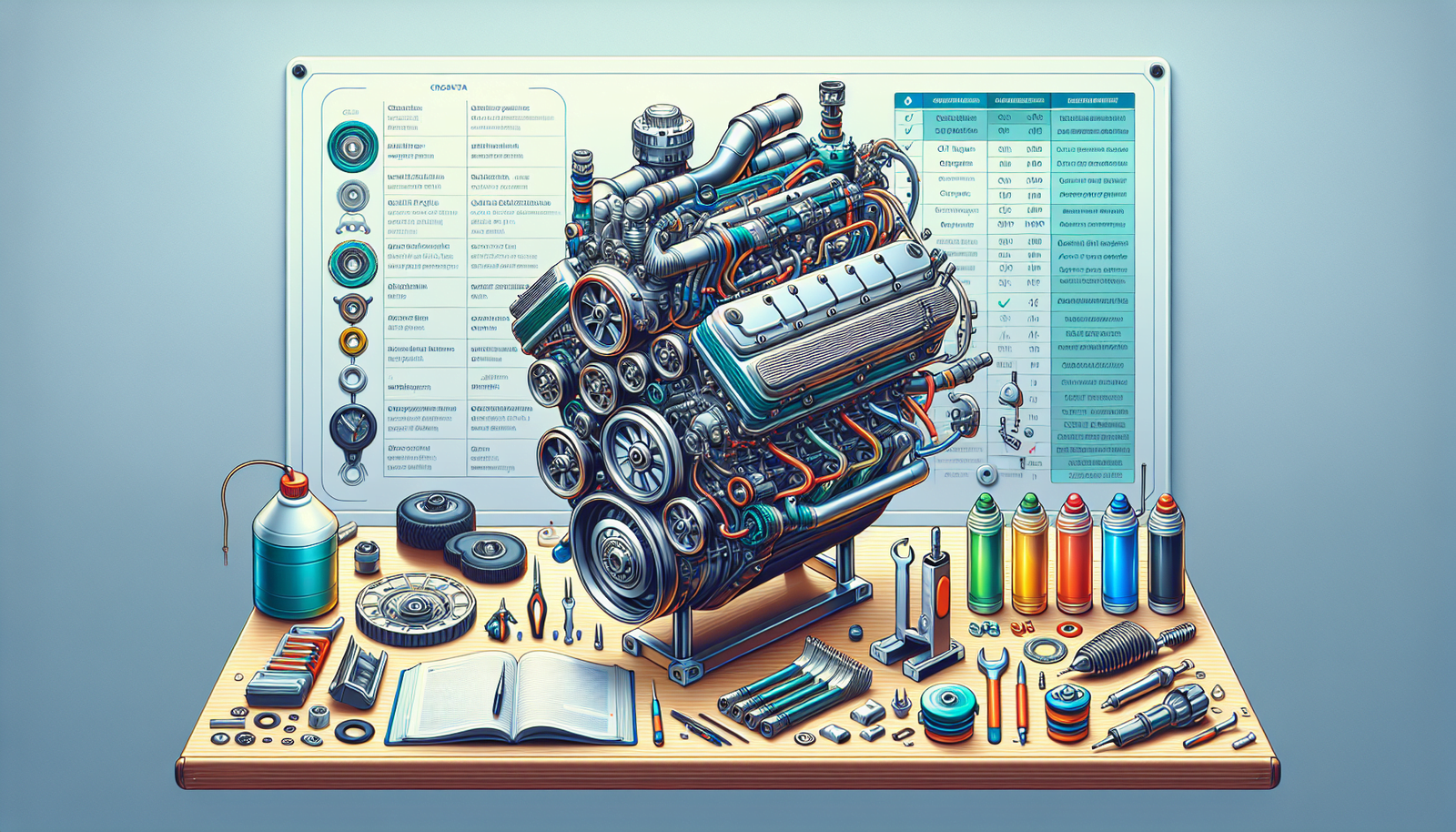You’re the proud owner of a sleek, high-performing boat, and nothing quite matches the joy you experience when you’re out gliding on the water. But crucial to these memorable adventures is the proper, regular maintenance of your boat engine to ensure it continues running smoothly for years to come. “Top Ways To Maintain Your Boat Engine For Longevity” provides you with expert tips on how to keep your boat’s engine in prime condition by covering everything from regular tune-ups to winter storage. Prepare to set sail into deep knowledge about efficient boat engine upkeep, guaranteed to safeguard your beloved vessel’s performance and longevity.
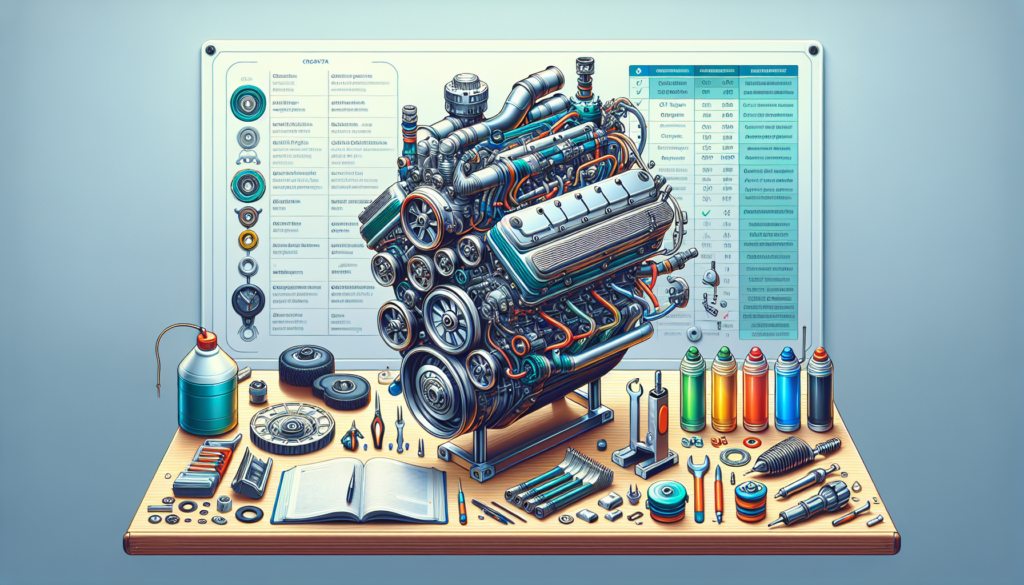
Understanding Marine Engines
Marine engines are the heart of any boat. Just as humans rely on our hearts to pump life-giving blood and oxygen throughout our bodies, your boat depends on its engine to power it across the water. That’s why understanding how they work and how to properly take care of them is critical for any boat owner or enthusiast.
Type of Boat Marine Engines
Marine engines come in a variety of types to suit different vessels and uses. Inboard engines, for example, are equipped inside the boat’s hull – a common choice for larger boats and yachts due to their superior power and stability. On the other hand, outboard engines are portable units located on the outside of the vessel and are typically used for smaller crafts. There are also jet engines, which propel boats by shooting out a jet of water, and sterndrive engines, which combine features of both inboard and outboard engines. Each has its own maintenance needs, so it’s important to familiarize yourself with your boat’s specific engine type.
The Importance of Engine Maintenance
Just as you wouldn’t skip getting regular check-ups for your health, your boat’s engine should also receive consistent attention and care. Regular engine maintenance prevents any minor issues from getting worse, enhances the longevity of your boat, and keeps it operating at optimal performance. Plus, by ensuring your engine is in tip-top condition, you’re also ensuring the safety of everyone on board – and nothing puts a damper on a boat trip like unexpected engine trouble.
Regular Engine Checkups
Just like cars, boat engines also need regular check-ups. This maintenance schedule involves pre and post boating season checkups as well as a monthly engine check.
Pre-Boating Season Check
At the start of the boating season, it’s crucial to take your boat for a complete check-up. This includes inspecting the engine for any visible damages, checking all fluid levels—including engine oil and coolant—and testing the boat’s battery. Remember, your boat has been sitting idle during the off-season, so complications might crop up.
Post-Boating Season Check
Just as important as the pre-season checks are post-season checks. Once the boating season comes to a close, give your engine a once-over to evaluate its condition. You might need to change the engine oil, replace filters, and ensure the fuel system is clean and dry.
Monthly Engine Check
In addition to the pre and post-season checks, you should also give your boat’s engine a check-up every month during the boating season. This will help to detect any developing issues early and rectify them before they result in more significant problems.
Engine Oil Maintenance
Your engine oil is one of the most critical components of your engine. It keeps everything running smoothly and reduces the risk of serious engine problems.
Choosing the Right Engine Oil
The type of oil you use in your boat’s engine can affect its performance. Marine engine oils are specially designed to handle the rigors of boating, so always opt for those. Synthetic oils, while more expensive, tend to provide the best protection and performance.
Regular Oil Changes
Oil changes are probably the most well-known and simplest forms of engine maintenance. Old oil can lead to build-up and damage in your boat’s engine over time, so it’s important to replace it regularly. You should aim to change your oil every 50-100 hours of operation or at least once a year.
Monitoring Oil Levels
Apart from changing your oil, you also need to keep an eye on its levels. Running your boat with too much or too little oil can cause severe damage. Make it a habit to check oil levels every time before you start your boat’s engine.
Keeping the Engine Clean
When it comes to extending the life of your boat’s engine, cleanliness is key.
Cleaning External Engine Parts
Start by cleaning the outside of your engine. Wipe away any dust, dirt, or grime that’s accumulated on the exterior of your engine.
Interior Engine Cleaning and Debris Removal
Regularly cleaning the interior parts of your engine is also essential. This might include using specialized engine cleaners to remove carbon buildup or simply removing debris that could potentially cause blockages.
Using Proper Cleaning Agents
When cleaning the engine, use only the recommended cleaning agents. Using the wrong products can do more harm than good. Read your engine’s manual to know what products are safe to use.
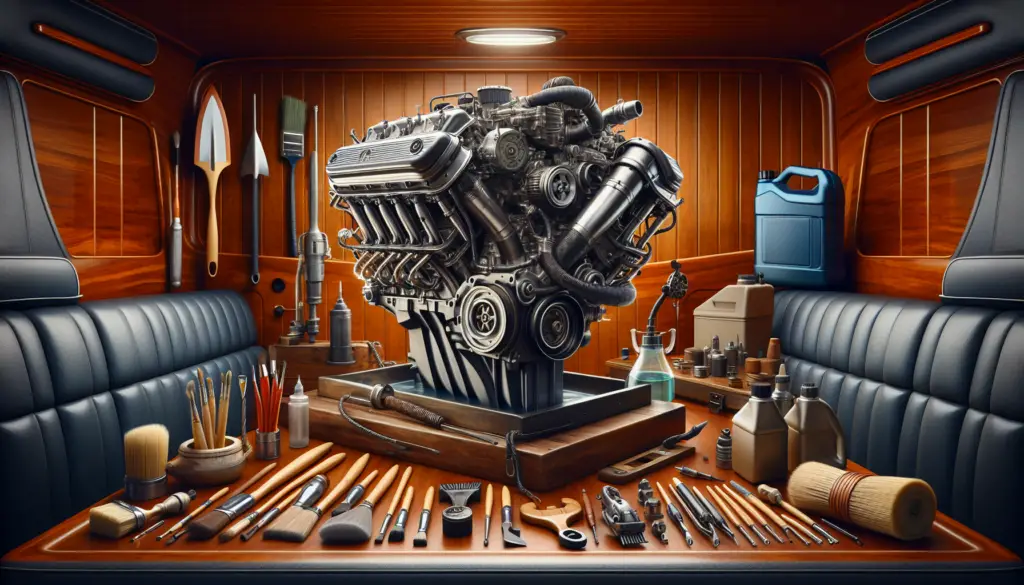
Fuel System Care
You’re probably aware of the importance of making sure your boat has enough fuel before heading out on the water, but it’s also essential to ensure that your boat’s fuel system is running optimally.
Fuel Filters: Inspection and Replacement
Fuel filters keep any dirt or debris out of your engine by catching them before they reach vulnerable parts. As such, keeping your fuel filters in great shape is key. Inspect them regularly and replace them as needed.
Fuel Lines: Monitoring and Maintenance
Fuel lines should be routinely monitored for leaks, cracks, or damages. Any indications of these should be attended to immediately to prevent fuel loss or, worse, fire accidents.
Fuel Additives and Their Use
Using fuel additives can help prolong the life of your engine by cleaning, protecting, and optimizing it. While not always necessary, they can certainly be beneficial in certain situations.
Cooling System Maintenance
Overheating is one common cause of engine damage. Hence, keeping your cooling system in top shape is crucial to prevent any overheating issues.
Proper Antifreeze Usage
Antifreeze or coolant maintains a steady temperature in your engine, preventing it from either freezing or overheating. Make sure to use the correct type and amount of antifreeze for your boat’s engine.
Regular Coolant Level Checks
Monitor your engine’s coolant levels regularly. If the level is low, refill the coolant to the recommended level.
Dealing with Engine Overheating
Overheating can severely damage your engine. If your engine is overheating, it’s critical to identify the problem and solve it as soon as possible. Common problems might include low coolant levels, faulty water pumps, or blocked coolant passages.
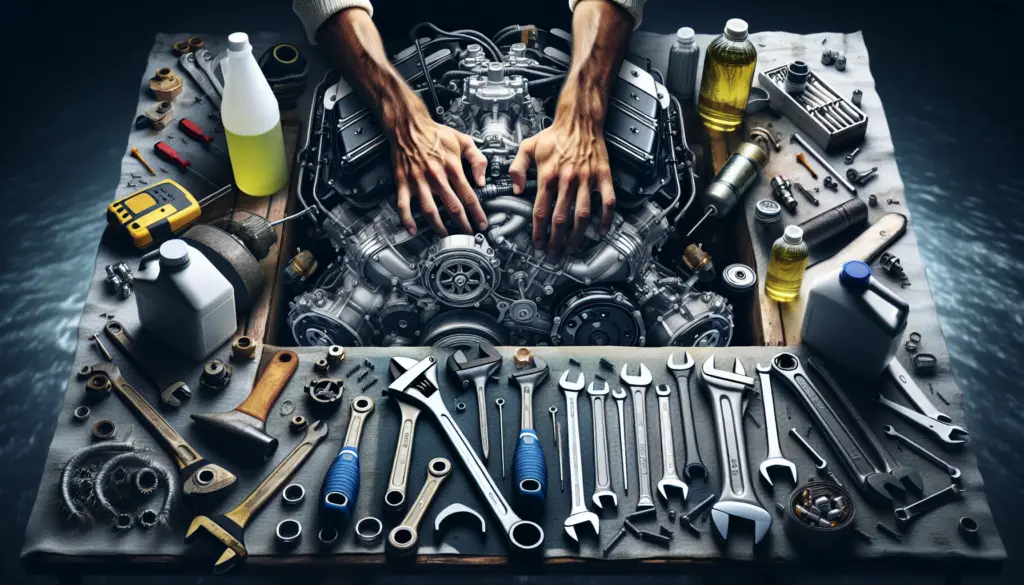
Electrical System Maintenance
The electrical system is an integral part of your boat’s engine. It starts the engine, charges the battery and operates the lights, amongst other things.
Maintaining the Battery
A dead battery can leave you stranded in the middle of a lake or an ocean. Regularly inspecting the battery, cleaning the corrosion, and checking for signs of wear and tear can prevent any unforeseen circumstances.
Inspecting Wiring and Connectors
Look for any loose wires or connectors, which can lead to electrical malfunctions. Ensure that they are all securely fastened and sealed to prevent water from causing any electrical shorts.
Understanding and Inspecting the Alternator
The alternator charges your battery and powers the electrical system when your boat’s engine is running. Understanding how it works and being able to identify any problems early on can save you from a lot of potential hassle.
Proper Lubrication
Lubrication reduces friction among moving parts in your engine, which can extend its lifespan significantly.
Role of Lubrication in Engine Longevity
Lubricating your engine regularly keeps it running smoothly, reducing wear and tear and increasing its overall life span.
Identifying Areas Needing Lubrication
Certain parts of your engine might need more frequent lubrication than others – such as the points of high friction or heat. Check your manual to know the areas requiring lubrication and the recommended lubrication interval.
Choosing the Right Lubricant
Different engines require different types of lubricants. Always use the correct type and grade of lubricant as recommended by your boat manufacturer to get the best results.
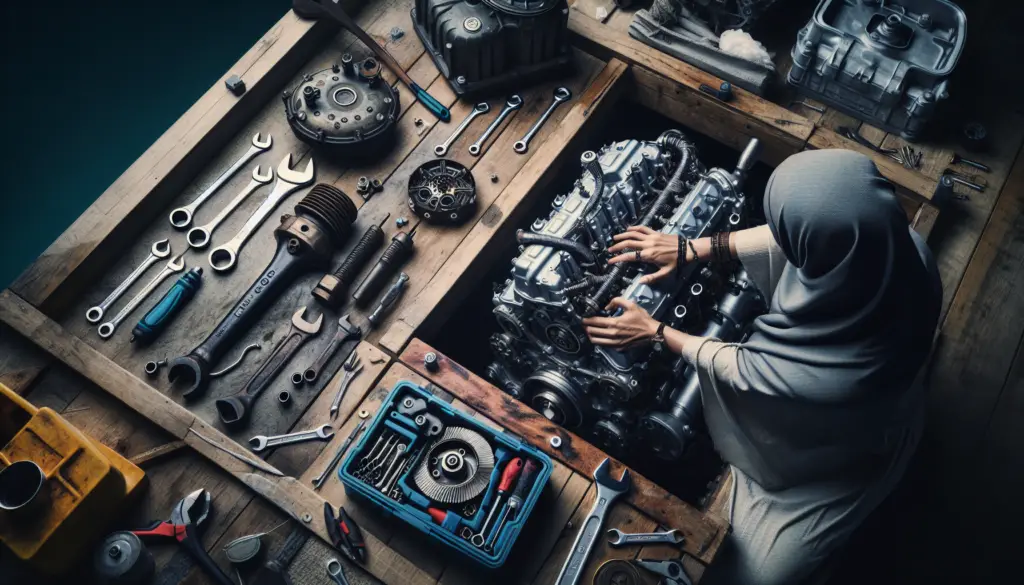
Engine’s Exhaust and Ventilation Care
The ventilation and exhaust system help to keep your engine cool and rid of harmful gases. Proper maintenance can increase the longevity of your boat’s engine.
Exhaust Manifolds and Risers
Exhaust manifolds and risers can corrode over time due to the harsh marine environment. Regular inspection and timely replacements can prevent any serious problems.
Exhaust Elbows and Hoses
Similarly, check for any sign of wear and tear or damage in your elbows and hoses. Replace them as necessary.
Proper Ventilation and Its Benefits
Having sufficient ventilation can prevent the build-up of harmful gases, reducing the risk of fire and improving engine efficiency.
Storing Your Boat Properly
Proper storage is just as important as regular maintenance when it comes to keeping your boat’s engine in good shape. Protecting your boat from the elements can go a long way toward ensuring its longevity.
Choosing the Right Boat Cover
Invest in a good quality boat cover. It’ll protect your boat from dust, rain, sunshine and other elements that could potentially harm your boat.
Indoor vs Outdoor Storage
If possible, opt for indoor storage. It provides better protection than outdoor storage. However, if outdoor storage is your only option, ensure your boat is well-covered and secured to withstand weather elements.
Long-Term Boat Storage Tips
If you’re storing your boat for a long time, make sure all the systems are well-protected. This might include flushing the cooling system, topping off the fuel tank, and removing the battery among other steps. Check your manual for specific instructions on long-term storage.
In conclusion, maintaining your boat’s engine may seem like a lot of work, but it’s definitely worth it. Regular care and attention can keep your engine running smoothly, extend its lifespan, and ultimately help you get more enjoyment out of your boat. Spotting and addressing problems early can save you a lot of time, money, and stress down the line. So, set up a maintenance schedule, stick to it, and happy boating!

